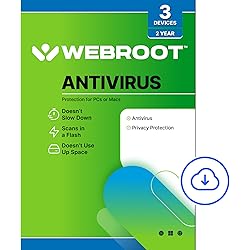Is Free Antivirus Enough for Everyday Users?
The question “is free antivirus enough for everyday users” is a common one as cyber threats continue to evolve and adapt. With so many options available, from free solutions to paid, comprehensive security suites, it can be difficult for individuals and small businesses to know what level of protection they truly need. Understanding the benefits and limitations of free antivirus programs is essential for making an informed cybersecurity choice.
Why Cybersecurity Matters for Everyday Users
In our digital-first world, every internet user faces risks: phishing scams, malware, ransomware, identity theft, and data breaches. Cybercriminals don’t only target large enterprises; individuals and small businesses are increasingly victimized. Robust cybersecurity isn’t a luxury—it’s a necessity. That’s where the debate over free versus paid antivirus solutions comes in.
What Does a Free Antivirus Offer?
Core Features of Free Antivirus Programs
Most reputable free antivirus programs provide the basics: real-time scanning for viruses, malware, and occasionally spyware. They aim to prevent or remove known threats from your system. Well-known free antivirus brands, such as Avast, AVG, Bitdefender, and Windows Defender, receive frequent updates to their malware definitions.
Who Should Consider Free Antivirus?
– Casual Users: People who only browse well-known websites, use strong passwords, and avoid risky downloads may find that a free solution meets their basic needs.
– Secondary or Older Devices: Free antivirus can extend basic protection to lesser-used computers or family members’ devices.
Where Free Antivirus Falls Short
Lack of Advanced Features
Most free solutions lack features that address modern threats, such as:
– Phishing and ransomware protection
– Firewall controls
– Secure browsing or banking tools
– Parental controls
– VPN access
– Identity theft monitoring
Without these, users become more vulnerable to sophisticated attacks—especially those spread through emails, malicious ads, compromised websites, or social engineering.
Limited Support and Customization
Free antivirus users rarely get technical support, fast response times, or the ability to customize advanced settings. For cybersecurity professionals or business owners, these omissions can be critical.
Data Privacy Concerns
Some free antivirus vendors may collect data for advertising or sell anonymized usage patterns to third parties. Always read the privacy policies before installation.
Paid Antivirus vs. Free Antivirus: A Comparative Analysis
Security Coverage
Paid Antivirus:
– Comprehensive threat detection (malware, ransomware, zero-day attacks, etc.)
– Advanced real-time protection and behavioral analysis
– Enhanced web and email security features
Free Antivirus:
– Basic malware defense
– Limited web and no email/phishing protection
– Fewer updates and weaker behavioral detection
User Support
– Paid: 24/7 customer support, security consultation, and direct response in case of breaches.
– Free: Limited or no support, community forums at best.
Suitable Use Cases
– Everyday Users With Good Security Habits: If you practice safe browsing and only need basic protection, a free antivirus could suffice.
– Small Businesses/Professionals Handling Sensitive Data: Paid solutions are recommended for their compliance, reporting, and layered security features.
Practical Tips for Everyday Security
Combine Free Antivirus with Safe Online Practices
Regardless of your antivirus choice, strong cybersecurity hygiene dramatically reduces your risk.
– Update your OS and apps regularly
– Use long, unique passwords and consider a password manager
– Enable two-factor authentication (2FA) where possible
– Backup important data frequently
– Stay cautious with downloads and attachments
Layer Your Security
Even if you use free antivirus, consider adding:
– A reputable standalone firewall
– Anti-phishing browser extensions
– Privacy tools (for encrypted communication and blocking trackers)
Frequently Asked Questions
Q1: Is a free antivirus program sufficient for basic protection?
A1: Free antivirus provides essential protection against known malware, but it may not defend against more complex threats like phishing or ransomware.
Q2: Can I use a free antivirus on my work computer?
A2: It’s generally not recommended for business use, as free programs lack advanced features, support, and compliance guarantees required in a professional environment.
Q3: Do free antivirus programs slow down my computer?
A3: Most modern free antivirus programs are lightweight and don’t noticeably affect performance, but system impact varies by provider.
Q4: Is Windows Defender enough for Windows 10/11 users?
A4: Windows Defender offers solid basic protection, but pairing it with additional security measures—like safe browsing habits or anti-phishing extensions—is advisable.
Q5: Can free antivirus stop ransomware attacks?
A5: Free antivirus may detect some ransomware, but paid versions offer more robust, proactive protection and recovery tools.
Q6: Are there privacy concerns with free antivirus software?
A6: Yes, some free antivirus vendors monetize by collecting and selling user data, so always review privacy policies before installing.
Summary and Final Advice
Everyday users often wonder, “is free antivirus enough for everyday users” when weighing the balance between cost and security. Free antivirus solutions deliver essential protection, but leave gaps against modern, sophisticated threats. For those who stick to safe online habits, basic tools may suffice. However, if you regularly shop online, handle sensitive data, or simply want extra peace of mind, investing in a premium antivirus—and adopting a layered, security-focused approach—offers superior defense.
Practical Takeaway:
Assess your digital habits and risk profile. If your online activities are minimal and you’re diligent about safe practices, a free antivirus with added browser security can work. But for anyone with valuable personal data or business responsibilities, a comprehensive paid security suite is a wise investment in your digital safety.

